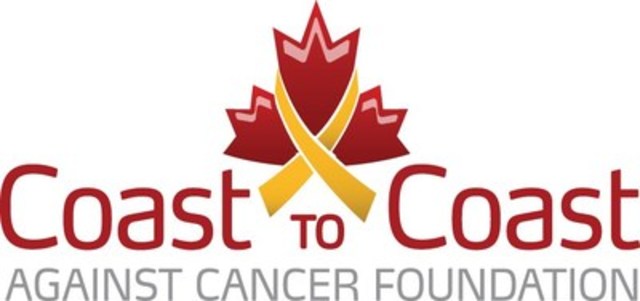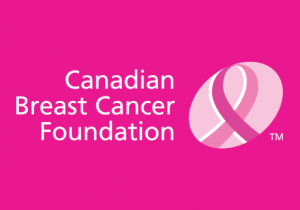Black men may have higher risks of poor prostate cancer outcomes

Black men may have higher risks of poor prostate cancer outcomes. With the 2012 US Preventative Services Task Force (USPSTF) advising against routine PSA screenings, black men may suffer the consequences.
Black men are more likely to die of cancer than any other ethnic group.1
Black men are 65% more likely to be diagnosed with prostate cancer and their risk of dying is 36% higher.2
Paul Crowe, Chairman and Chief Executive Officer at Nuview Life Sciences (NVLS), says ethnic groups predisposed to cancer should follow more intensive screening, not less.
Unfortunately, biopsies today are expensive, invasive and often inaccurate:
- 33% of men with an initial "negative" result for prostate cancer do have prostate cancer that was missed by the biopsy.
In addition, black patients who met the age criteria for prostate cancer screening, 55 to 69 years, had higher odds of the disease spreading (76% vs 55%) and mortality (53% vs 25%) than ineligible patients. 2
Per Crowe, this inaccuracy and recommendation to end PSA screening can lead to neglected or even unnecessary treatment, a lowered quality of life or worse:
“In the case of a missed diagnosis, a life can be lost – it doesn’t have to be this way.”
Per Crowe, non-invasive technology is the solution to rapid – and accurate – diagnosis.
NuView has announced its new personalized treatment application that will expedite the identification and treatment of many types of malignant cancers. NuView’s system will, for the first time, assess the lowest minimum treatment required to provide a high-quality of life for those affected.
Crowe says these developments will not only save the U.S. billions of dollars, but will improve the quality of life and healthcare of the consumer (patient) market.
Research and testing using NuView’s exclusive imaging agent have been successful in clinical feasibility studies – reporting 100% accuracy in diagnosing cancer in effected males – and the company plans Phase II clinical trials in 2017.
NuView Life Sciences is a biotechnology company located in Park City, Utah, working to reform the way cancer is diagnosed and treated in our modern healthcare system
Coast to Coast Against Cancer Foundation Distributes $4.1M to Childhood Cancer Charities across Canada for 2016
Over $44 Million has been distributed since 2004 to improve the lives of children and their families living with cancer
Coast to Coast Against Cancer Foundation (CTCACF) - Canada's largest national charity devoted to fighting childhood cancer - announced today the disbursement of $4.1M to a variety of childhood cancer charities across Canada, helping fund important survivorship, research and family support programs in every province. These funds represent CTCACF's fundraising activities for 2016, with 100 percent of receipted donations disbursed directly to designated charities.

"The funds we raise are critical in supporting programs that can improve the survival rates and the quality of life for children and their families living with this terrible disease that takes more Canadian kids than all other diseases," said Jeff Rushton, Co-Founder, Passsionate Volunteer and Board Chair, CTCACF. "I'm grateful and humbled by the hard work of our volunteers and the generosity of sponsors, whose contributions allow our Foundation to distribute 100 percent of receiptable donations directly to the worthy charities who count on us to help them deliver services, conduct research and provide treatment in support of these kids and their families."
The $4.1m was distributed to over 40 charities at the local, regional and national level in each province across Canada. Recipient organizations include pediatric oncology hospital units for research programs, childhood cancer camping organizations who deliver support programs and camping experiences for kids & their families going through the disease, and organizations supporting the financial and other needs of patients and their families throughout the cancer journey.
1,700 children under the age of 19 are diagnosed with cancer every year and childhood cancer is the leading disease-related cause of death in Canadian children. For the 75 percent of childhood cancer patients who beat the disease, over 50 percent suffer late effects of the disease and treatment. Childhood cancers are very different from adult cancers and rarely benefit from general cancer research. At the same time, the detection and treatment of childhood cancer places unique demands on our healthcare system.
CTCACF raises funds through a series of high quality, memorable, physically challenging, national and regional events that encourage active lifestyles and engage sponsors, participants, donors and volunteers.
CTCACF Events for 2017:
Hero Ride June 3rd-4th
- A two-day, 250km biking expedition with a start/end point at King City and an overnight stay at The Westin Trillium House at Blue Mountain.
Bike for Tykes June 15th
- Enjoy four exhilarating hours of spinning, relay style, on a stationary bike in the Toronto financial district.
Tour for Kids Alberta July 14th-16th
- Ride over 100km/day in Calgary's gorgeous Rockies, sleep one night at Camp Kindle, and see how your fundraising helps the camp in need.
Tour for Kids Atlantic July 29th-30th
- Two glorious days along the shores and through the wilderness of Nova Scotia. Spend the night at Camp Brigadoon, the local camp we support.
Tour for Kids Ontario August 18th-20th
- Ride 100-200+km/day along the Niagara Escarpment, staying overnight at Brock University. Camp Trillium, one of our recipients, hosts lunch for all riders on the 19th.
Ride for Karen Aug 27th
- A one-day cycling event in Stouffville held as a tribute to the life and legacy of Karen Tobias. Ride 100, 160 or 200km, celebrate your ride with friends at the BBQ and pasta lunch.
Sears National Kids Cancer Ride Sept 6th-23rd
- Join 42 National Riders when they depart White Rock, BC and cycle 7000km across the country to Halifax, Nova Scotia. Visit hundreds of communities, meet many childhood ambassadors, spend time at the Hospital Foundations and raise funds for kids cancer research.
Knobby Tire Trek for Kids Sept 22nd-23rd
- A family-friendly, 3-day mountain biking adventure on pre-built trails providing all types of riding terrain. The trails are located on beautiful private property.
Tour d'Epicure Sept 30th
- An exciting one-day cycling and epicurean adventure in the Niagara Peninsula for the connoisseur of food, wine and cycling!
Various Inside Rides throughout the year
- A team-based indoor cycling challenge and fundraising event which promotes volunteerism and encourages physical activities. Perfect for highschools, universities, work place environments, community groups and more.
About Coast to Coast Against Cancer Foundation
As Canada's only national charity devoted to fighting childhood cancer, Coast To Coast Against Cancer ensures 100% of receiptable funds raised go toward improving the survival rate and quality of life of children and their families impacted by cancer. Funds are raised by conducting memorable events that encourage active and healthy lifestyles. From cycling rides to team-building activities, children across the country benefit from the generous support of our sponsors, participants, donors and volunteers. www.beyondkidscancer.ca
SOURCE Coast to Coast Against Cancer Foundation
New Study on Finally Treating Chemo Brain
Breast cancer patients and support groups first brought attention to a phenomenon they called “chemo brain” or “chemo fog” in the 1980s. The often vague yet incredibly distressing mental changes cancer patients experienced were real, yet many medical professionals continued to question the phenomenon’s seriousness and very existence. Studies on cancer-related cognitive decline unfortunately did not begin until the late 1990s, and, 30 years later, there is still no treatment.
However, a new study will publish on Monday, October 31st, which suggests that the lack of understanding and treatment for cancer-related cognitive decline may be about to change. For decades cancer patients have been affected by chemo brain – a mental cloudiness noticed before, during, and after cancer treatment. Defined as a decrease in mental “sharpness” – with many chemo brain patients having difficulties with memory recall, finishing tasks, and learning new skills – chemo brain indisputably impacts every aspect of the patient’s life. One doctor working to reverse such devastating effects is world-renowned scientist and founder of Posit Science, Dr. Michael Merzenich.
If you are interested in discussing the major developments and breakthroughs being made in the fight against cancer-related cognitive decline, the future of medicine, and how technology is creating new cognitive medical advancements, please let me know – I would be happy to arrange an interview with Dr. Merzenich or provide you with written commentary and additional information.
Additionally, please let me know if you would be interested in an early release on the forthcoming chemo brain study.
New compound shows promise in treating multiple human cancers

A new compound, discovered jointly by international pharmaceutical company Servier, headquartered in France, and Vernalis (R&D), a company based in the UK, has been shown by researchers at the Walter and Eliza Hall Institute and Servier to block a protein that is essential for the sustained growth of up to a quarter of all cancers.
The research presents a new way to efficiently kill these cancerous cells and holds promise for the treatment of blood cancers such as acute myeloid leukaemia, lymphoma and multiple myeloma, as well as solid cancers such as melanoma and cancers of the lung and breast. It is published online today in the journal Nature.
The Servier compound - S63845 - targets a protein of the BCL2 family, called MCL1, which is essential for the sustained survival of these cancer cells.
Institute scientist Associate Professor Guillaume Lessene, who led the Walter and Eliza Hall Institute's research team in Melbourne, Australia, said the work provided the first clear preclinical evidence that inhibiting MCL1 was effective in targeting several cancer types.
"MCL1 is important for many cancers because it is a pro-survival protein that allows the cancerous cells to evade the process of programmed cell death that normally removes cancer cells from the body," Associate Professor Lessene said. "Extensive studies performed in a variety of cancer models have shown that S63845 potently targets cancer cells dependent on MCL1 for their survival."
The institute team of Associate Professor Lessene worked with haematologist Associate Professor Andrew Wei and Dr Donia Moujalled from The Alfred Hospital and Servier scientists, to demonstrate that not only was S63845 effective against several cancer types, but that it could also be delivered at doses that were well tolerated by normal cells.
Dr Olivier Geneste, Director of Oncology Research at Servier, said: "This preclinical research and the identification of drug candidates confirm the potential of MCL1 as a therapeutic target in cancers. S63845 was discovered through collaboration with the fragment and structure based discovery expertise at Vernalis. As part of the ongoing Servier / Novartis collaboration on this target class, clinical development of a MCL1 inhibitor should be launched in the near future."
Associate Professor Lessene said the research provided further evidence of the usefulness of a new class of anti-cancer drugs called BH3 mimetics. "BH3 mimetics inhibit a group of proteins known as the 'pro-survival BCL-2 proteins'," he said. "MCL1 is a member of this protein family, and inhibiting it activates the process of programmed cell death. Walter and Eliza Hall Institute researchers revealed the role of BCL-2 in cancer more than 28 years ago and the essential role of MCL1 for the survival of malignant cells four years ago."
The research was supported through a research collaboration with Servier and through funding from the National Health and Medical Research Council of Australia, the Leukemia and Lymphoma Society (US), Cancer Council Victoria, the Kay Kendall Leukemia Fund, Victorian Cancer Agency, Australian Cancer Research Foundation, the Victorian Government Operational Infrastructure Scheme and the estate of Anthony Redstone.
The Walter and Eliza Hall Institute is the research powerhouse of the Victorian Comprehensive Cancer Centre, an alliance of leading Victorian hospitals and research centres committed to controlling cancer.
About Servier
Servier is an international pharmaceutical company governed by a non-profit Foundation and headquartered in France. With a strong international presence in 148 countries and a turnover of 3.9 billion euro in 2015, Servier employs over 21,200 people worldwide. Corporate growth is driven by Servier's constant search for innovation in five areas of excellence: cardiology, oncology, metabolism, neuropsychiatry and rheumatology, as well as by its activities in high quality generic drugs. Being completely independent, the Group reinvests 25% of Servier's products turnover in Research and Development, and all its profits in its growth.
Becoming a key player in oncology is part of Servier's long-term strategy. Currently, there are nine molecular entities in clinical development in this area, targeting gastric and lung cancers and other solid tumors, as well as various leukemias and lymphomas. This portfolio of innovative cancer treatments is being developed with partners worldwide, and covers different cancer hallmarks and modalities, including cytotoxics, proapoptotics, targeted, immune and cellular therapies.
2016 Stand Up To Cancer (SU2C) and Stand Up to Cancer Canada (SU2C Canada)
Check out these practical gifts that give back – a collection of apparel, jewelry, accessories, and more, each a thoughtful gift for anybody who wants to support groundbreaking scientific research in the fight against cancer.
SU2C and SU2C Canada are unique in that they fund collaborative, translational cancer research to bring treatments from the bench to the bedside faster, and save lives now.
- Stainless Steel Water Bottle
- Wireless High Performance Headphones
- Lightweight Duffel Bag
- Yoga Mat, Strap & Carrying Case
- Women’s Short Logo Jersey Sleeveless Hoodie
- Women’s “We Used To Have Such Crazy Dreams” Terez Leggings
- Men’s Quantum Zip Short Logo Athletic Jacket

Stand Up To Cancer Short Logo Stainless Steel Bottle, $29.95
This Stand Up To Cancer stainless steel water bottle makes a bold and heart-warming statement of support while you are on the go. Featuring the SU2C short logo in a sturdy stainless steel bottle, you can take it to the gym or the office, and share your support for survivors and groundbreaking cancer research.

Stand Up To Cancer Roam Wireless High Performance Headphones, $199.00
This Stand Up To Cancer 8 hour battery life headphones comes with four additional ear tips and a storage pouch with Bluetooth connectivity. These headphones work with all contemporary smartphones, tablets and computers.

Stand Up To Cancer Lightweight Duffel Bag, $24.95
Made of strong polycanvas material, this bag features a simple fold-flat design, this is a perfect bag to pack for the gym or to keep one in the car for an impromptu weekend getaway.

Stand Up To Cancer Yoga Mat, Strap & Carrying Case, $69.95
Stand up and zen out with our SU2C yoga travel set. Durable and springy, this mats’ foam construction is designed for the yoga enthusiast. This set includes a bright orange SU2C printed yoga mat, a carrying strap, and handy cloth bag.

Stand Up To Cancer Women’s Short Logo Jersey Sleeveless Hoodie, $39.95
Make a difference and show you support accelerated cancer research with this sleeveless hooded poncho. This comfy tee works as a great layering piece to and from workouts or for all-day athleisure. Stand Up in style and show your pride in this chic new style.

Stand Up To Cancer Women’s “We Used To Have Such Crazy Dreams” Terez Leggings, $78.00
Stand up, get your sweat on, and make a statement in these Terez Stand Up To Cancer Performance Leggings. Our mantra is emblazoned on these vibrant performance leggings, reminding us that no matter how we're staying active, we're helping to change the lives of millions of people.

Stand Up To Cancer Men’s Quantum Zip Short Logo Athletic Jacket, Black and Orange, $89.95
Stay fit with our Quantum zip-up athletic jacket, featuring our short SU2C logo and matching vibrant orange detailing along the sleeves. This comfortable and versatile jacket protects you from all types of weather and is perfect for layering when the temperatures drop.
Sweet News: Review of Literature Indicates Sucralose Is Not Linked to Cancer

In a society where obesity is increasingly recognized as a risk factor for disease, low- and no-calorie ingredients are logical choices for those wishing to manage their weight. However, some people have concerns that sucralose, a no-calorie sweetener, may be linked to cancer. A new article published in Nutrition and Cancer: An International Journal may finally put those fears to rest; a comprehensive review of studies testing the safety and carcinogenicity of sucralose has confirmed that the artificial sweetener does not cause cancer, and is safe to ingest.
“This latest review of sucralose studies should reassure those who choose sucralose, and can be particularly useful to scientists and healthcare professionals, who may be asked for information on low calorie sweetener safety,” says lead author of the study, Professor Dr. Sir Colin Berry, Emeritus Professor of Pathology at the University of London.
Sir Berry and his fellow researchers conducted a review of studies assessing sucralose carcinogenicity potential, and placed them in the context of the types of studies relied upon by national and international regulatory agencies to make recommendations on the safety of new food ingredients. These studies are designed to maximize the possibility of detecting potentially adverse effects, and as such, adverse outcomes are expected to occur at some point.
To that end, many of the studies observe the results of dosages hundreds to thousands of times greater than any reasonable level of consumption. For example, the studies reviewed include observations on consumption of sucralose in quantities equivalent in sweetness to 74 to 495 pounds of sugar per day for an average weight (e.g., 75 kg) adult.
The Acceptable Daily Intake (ADI) for sucralose, established by the Joint Food and Agricultural Organization/World Health Organization Expert Committee on Food Additives, is 0 to 15 mg/kg body weight/day. In the studies reviewed, even when exposure levels were several orders of magnitude greater than the recommended ADI, sucralose did not demonstrate carcinogenic activity.
“Concerns are raised from time to time on what components of our lifestyle affect the rates of cancer,” continues Sir Berry. “Smoking and sunlight are on all our lists and obesity is beginning to be recognised as a major factor. So low calorie sweeteners, which are important to many in managing their weight, need to be examined carefully in terms of lifetime use.”
Disclaimer: Funding for both the independent literature review, which formed the basis for the current paper, and the preparation of the manuscript, was provided by McNeil Nutritionals (creator of Splenda, since sold to Heartland Food Products). All study authors were employees of, or consultants to, McNeil Nutritionals at the time the manuscript was prepared. Some of the studies on sucralose’s safety reviewed in this study were also funded by the artificial sweetener industry.
RYU is partnering with the Canadian Breast Cancer Foundation (CBCF) for a special event that will coincide with the launch of Breast Cancer Awareness Month in October, and are looking for your support!
- What: we will be hosting 30-40 people for a bootcamp and brunch (snacks and beverages) at the flagship store on West 4th Avenue on S. In VANCOUVER.
- When: Saturday October 1st from 9AM-11AM
- Where: RYU flagship store
- Why: to raise funds for the CBCF - bootcamp will be by donation with 100% proceeds going towards CBCF
- Who: bootcamp is open to the public.
Ways you can support:
- Join the workout (by donation) and bring a friend, family member or your clients!
- Donate your services as part of our event’s raffle or silent auction (ex: 1 free hour FMS assessment and personal training)
- Promote our Bootcamp event invitation via social media on FB/Instagram/Twitter (invite graphic coming soon)
- Promote the purchase of pink RYU apparel throughout the month of October
- 25% of proceeds on all featured pink products will be donated to CBCF both in-store and online
- Host a "By-Donation" workout of your own at RYU within the month of October (proceeds towards CBCF): please contact Amy to coordinate at amhy@ryu.com
HEALTHY GUMS COULD SAVE YOUR LIFE
Study Shows Connection between Gum Disease and Pancreatic Cancer
A new study presented at the 2016 American Association for Cancer Research meeting points to a connection between gum disease as a potential early marker for pancreatic cancer. The study, from a group of researchers at New York University, could possibly pave the way for early detection of this deadly disease.
So, it’s more important than ever to keep our teeth and gums in good shape. And studies also show that smiles make us more attractive, lower stress, elevate our mood and make us look younger!
But, many of us don’ take good care of our gums. Nearly 50% of adults 30 years old or older have periodontal disease in the U.S., and that number spikes to 65% in adults 65 years old or older. Yet, it’s not a disease that’s readily discussed, despite the fact it’s 2.5 times more common than diabetes! But, there’s good news. Gum disease is preventable, or reversible, if you just “love the gums you’re with.”
The American Academy of Periodontology (AAP) encourages all Americans to understand the importance of periodontal health through its “Love The Gums You’re With” campaign. The AAP hopes to educate us on the importance of good oral hygiene, and the need to speak to a dental professional about periodontal health because we all love the thought of a sparkling smile and fresh breath.
“Taking care of your gums shouldn’t be an afterthought,” says AAP President Dr. Wayne Aldredge. “Gum disease is preventable, or reversible. You just need to follow a few simple tips to ensure a lifetime of healthy gums.”
The AAP just launched a new tumblr page called GUMBLR (Gumblr.org) to help you take better care of your gums. This engaging site is filled with valuable information to help you find a local periodontist, learn more about gum disease and take an interactive quiz. Check it out today!
To help us keep the gums we have for life, here are some fast facts from the AAP:
- There are two types of periodontal disease: gingivitis, the mildest form, and periodontitis, or advanced gum disease
- Periodontists specialize in the prevention, diagnosis and treatment of periodontal disease, and receive three additional years of training after dental school
- Symptoms of periodontal disease include red and swollen gums, receding gums, bleeding when flossing, loose teeth, mouth sores and persistent bad breath
- Gums may separate from teeth, forming pockets that become infected with bacteria
- Gum disease can lead to social anxiety and discomfort from loss of teeth and bad breath
- Here’s what helps according to AAP President, Dr. Wayne Aldredge: “brushing twice a day, regular flossing, regular dental checkups and discussing gum health with a periodontist. If needed, there are non-surgical therapies or more advanced procedures based on the severity of the disease.”
- In 2015, an AAP survey showed that 27% of U.S. adults lie to their dentist about how often they floss their teeth, with 15% saying they’d rather wash dirty dishes than floss.
New study shows higher levels of vitamin D can drastically lower risk of cancer by 67%
TORONTO, Ont. – Women with high concentrations of vitamin D have been found to have a much lower chance of developing cancer, according to a recently published study.
Published in the journal PLOS ONE and authored by a team from Creighton University, University of California, San Diego and GrassrootsHealth, the research found a 67% reduction in risk for all cancers in women with vitamin D levels > 100 nmol/L (40 ng/ml) compared to womenwith vitamin D levels < 50 nmol/L (20 ng/ml).
Drawing on results from one of Creighton’s past studies, Dr. Heaney and researchers at the University of California, San Diego School of Medicine worked with Dr. Lappe’s team and GrassrootsHealth to provide data from its members to aid in the study. Combining both pools of data, the researchers were able to create a larger overall cohort of 2,304 women with a broader range of serum levels for the analysis.
The resulting conclusion was that women with higher than 100 nmol/L (40 ng/ml) vitamin D levels were associated with substantial reduction in risk of all invasive cancers combined.
Dr. Heaney, one of the study’s authors, noted the importance of sunlight in vitamin D absorption. While ancestors spent a lot of time outdoors in direct sunlight, today more time is spent indoors and behind computer screens.
“Be sure you’re getting as much vitamin D as nature would give you under natural circumstances and you were wandering around outdoors exposing a lot of skin in the summer,” said Heaney. “We have got to find a way to translate [these studies] into policy; public health policy.”
In Toronto, Dr. Reinhold Vieth, scientific advisor for the Vitamin D Society and professor at the University of Toronto, is encouraged by the results.
“This analysis provides more evidence that vitamin D plays an important role for cancer, and not just bone health,” said Dr. Vieth. “More vitamin D, or more sunshine, is related to lower cancer, heart disease, diabetes, multiple sclerosis, osteoporosis or death. Fortunately, taking advantage of the health benefits of vitamin D couldn’t be easier as it comes for free with spending time in the sun.”
Approximately 12 million Canadians (35%) fall below the minimum vitamin D blood level requirements of 50 nmol/L set by Health Canada and the Institute of Medicine and 90% of Canadians do not meet the 100 nmol/L recommended by this research study.
“The takeaway message from this study is clear,” said Perry Holman, Executive Director of the Vitamin D Society. “If you want to help prevent the risk of cancer for you and your family, ensure that your 25(OH)D vitamin D blood levels are greater than 100 nmol/L.”
About the Vitamin D Society:
The Vitamin D Society is a Canadian non-profit group organized to increase awareness of the many health conditions strongly linked to vitamin D deficiency; encourage people to be proactive in protecting their health and have their vitamin D levels tested annually; and help fund valuable vitamin D research. The Vitamin D Society recommends people achieve and maintain optimal 25(OH)D blood levels between 100 – 150 nmol/L (Can) or 40-60 ng/ml (USA).
References:
McDonnell SL, Baggerly C, French CB, Baggerly LL, Garland CF, Gorham ED, et al. (2016) Serum 25-Hydroxyvitamin D Concentrations _40 ng/ml Are Associated with 65% Lower Cancer Risk: Pooled Analysis of Randomized Trial and Prospective Cohort Study. PLoS ONE 11(4): e0152441. doi:10.1371/journal.pone.0152441
Sweating your way to optimal health
Giacomo Fasano highlights the benefits of detoxifying the body through running in new fitness book

I recently received the book Revolutionary Powercycles to review. As I am a track and field coach and recreational runner it was very fitting to my lifestyle. The fundamentals of fitness have been under our noses forever, but some aspects have not been diligently recognized. I also myself had to under go chemo last year (non cancerous) and used exercises as part of my therapy for both the mental and physical aspects. Although after reading this book I don't think that it is for everyone but there is a place for it with a lot of people. Sweat does help use release toxins in our bodies and I think we need to focus more on that with our treatment plans for a lot of illnesses. Please use the programs that the author suggests if you have a doctor to supervises especially if you are on any radiation therapy or chemotherapy drugs.
In the book “Revolutionary Powercycles,” Giacomo Fasano presents an 8-year self-study of his unique exercise regimen, Powercycle68, which combines 68 minutes of vigorous and slow-paced running to achieve the highest amount of sweat extraction.
Lead and other toxic metals present in sweat are cumulative toxicants that affect multiple bodily systems that can lead to many illnesses like cancer, tumors, depression, high blood pressure and premature aging. The World Health Organization says there is no known level of lead exposure that is considered safe, and that lead can enter the body through environmental contamination or ingestion.
“The pragmatic approach to targeted lead removal in Powercycle68, known as progressive displacement, is like a reverse vitamin to our bodies,” Fasano said.
By following Giacomo’s fitness plan, readers currently undergoing cancer treatments can also improve their health through progressive displacement by lowering the levels of arsenic toxicity in their bodies caused by radiation or chemotherapy drugs while generating new, healthy cells in the brain, lungs and other organs.
“I am of the strong opinion that the calculated, systematic and consistent removal of lead and other bad toxins from the body can only begin to have mankind be taller and better than cancer and other ailments,” Fasano said.

For more information, visit http://www.revolutionarypowercycles.com.
Or Amazon: http://www.amazon.ca/Revolutionary-Powercycles-Giacomo-Fasano/dp/1503512525/ref=sr_1_2?ie=UTF8&qid=1450066117&sr=8-2&keywords=revolutionary+powercycles
The author Giacomo Fasano has a bachelor’s degree in marketing from Johnson & Wales University and a law degree from Pace University School of Law. His passion for health and fitness is well into its fourth decade, having logged more than 14,000 miles of running throughout the last 10 years.
Thank you so much for giving me the honour to read your book Giacomo Fasano. It really reminded me and re- opened my eyes as a health professional and track coach about the benefits of sweat and exercise. Endorphins are a powerful drug. We all need to take exercise I bit more seriously.















